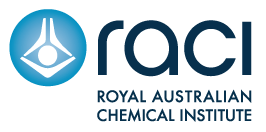Why consumers choose natural wines has been a common question since my article in the September/October issue (p. 38). I have not been able to find any rigorous studies on attitudes towards natural wines. Rather, there is a collection of articles on the web that claim to give a consumer perspective, usually coming from proponents of natural wines. For example, in a recent column in TheShout (bit.ly/2Rv9DXr), Justin Fairweather from Alpha Box & Dice in McLaren Vale commented that the natural wine movement is driven by consumers from varied backgrounds who demand ‘transparency and truth around the winemaking process’. Authenticity of the final product is the key here, he argues.
Justin also argues that the wine industry should come up with a definition of natural wines. He suggests that this would allow the industry to understand what natural wine is and potentially help target consumers, thereby assisting with marketing and promotion. In France, the L’Institut national de l’origine et de la qualité (INAO) commenced a discussion in early 2016 in an attempt to come up with a formal definition (bit.ly/2E4HYdr). It seems that even this august body has reached a dead end because agreement has not been achieved after 2.5 years or more.
To obtain some France–Australia insight into the definition question, I contacted Paul Old at Les Clos Perdus (Lost Vineyards; bit.ly/2zWwvs4). Paul, who studied oenology at Charles Sturt University, joined colleague Hugo Stewart to commence their operation with 1.5 hectares in the Corbières region in southern France. Now expanded to 20 hectares across the Languedoc-Roussillon region, the operation is committed to biodynamic principles, achieving independent certification by Demeter (bit.ly/2NtKXv5). Demeter, named after the Greek goddess of grain and fertility, verifies to consumers that the biodynamic products meet international standards in food and beverage production and processing. Adopting the complete set of biodynamic principles has transformed the struggling vines at Les Clos Perdus into effective grape-producing vineyards. The winemaking philosophy has been developed to ensure that the quality of the terroir of each vineyard shows through in the finished wine. This is a particularly labour-intensive practice that affects the wine’s price point, but is highly successful given the number of rave reviews that Les Clos Perdus receives.
Paul agrees that the term ‘natural wine’ is widely used, but suggests that a more relevant question is why such a term came into existence. Given the viticultural and winemaking practices followed at Les Clos Perdus, many would see the wines as falling in the ‘natural’ camp. Paul indicates that about half the clients of Les Clos Perdus wines sit in the ‘natural wine’ camp, while others actively avoid the term. Maybe therein lies the answer: make great wine following well-defined principles and let the consumer decide on the terminology that best fits their own ideology.
Without any doubt, there is a strong movement within the grape-growing and winemaking sector to focus on sustainable practices; that is, on the harmony between the environment and the finished product. An increasing number of producers are adopting ‘organic’ certification rather than pursuing the biodynamic approach. Perhaps this is driven by scepticism about the biodynamic philosophy, by the cost impact of the biodynamic approach and by the suitability of biodynamics in some climates where disease pressure can be high.
Winemakers are increasingly using labels on bottles to identify the practices they have followed, but this itself can become competitive. In France, where I recently had the opportunity to look at this issue, there are several different label categories that may be used. AB, agriculture biologique, means that all production steps in the finished wine meet EU regulations for organic food production (bit.ly/2EbNkng). Use of AB is simply a factual statement and can be reinforced with the EU logo ‘CERTIFIÉ PAR FR-BIO-01 AGRICULTURE UE’ that validates the AB statement (bit.ly/2zWWAaG). The latter is intended to reassure consumers that the rules regarding organic agriculture have been followed. Terra Vitis and Vignerons et Development Durable are two regional and national organisations that express a commitment to a set of principles for sustainable development to which growers and winemakers must agree. The concern about the decline of pollinating bees in vineyards has led some winemakers to follow the bee-friendly principles of agriculture and a sticker ‘JE PROTÈGE LES ABEILLES’ may be placed on the bottle.
While this emphasis on sustainable development may seem a long way from my initial thoughts on defining natural wines, it seems to me that the reality is a commitment by producers and consumers to nature and the environment. As a closing thought on this topic, I quote a recent comment by wine writer Jancis Robinson (Financial Times Weekend, 29/30 September, p. 19): ‘Anyone who has visited a wine region and seen chemicals being sprayed that are so potent that the vineyard workers are clad as if they are investigating a Novichok incident is likely to find organically grown grapes an attractive proposition’.


